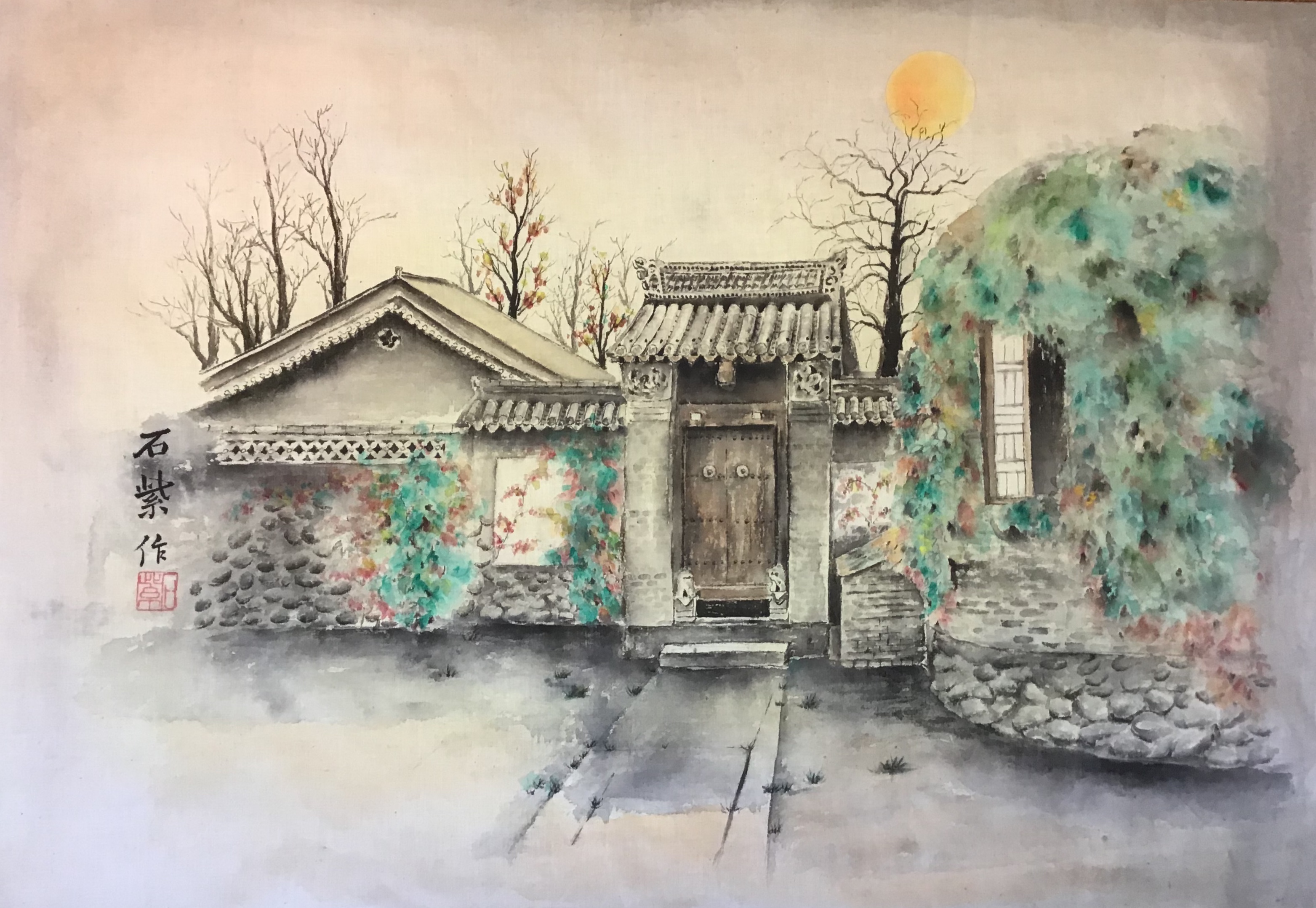For many years I have been intrigued by Beijing's classic alleys, or hutong. The old courtyard homes and hutong give Beijing a unique feel; they give one a sense of the social customs and interaction in Beijing. Very frequently while walking the hutongs, I would see notes on telephone poles and tree trunks that read "Immanuel" or "The Kingdom of Heaven is near." These encounters touched me, and I felt like was reading Psalm 119:105, "Your word is a lamp for my feet, a light on my path."
It's a saying that there are three thousand and six hundred hutongs in Beijing. named Giving a very lively atmosphere, a hutong doesn't have big city glamor and wealthy people don't live or shop there, but there is definitely a richness and variety that provides an alternative sense of beauty to me.
Spring in Beijing is very short. I still remember once when I went out of the door of my home, the last verse I was reading before I closed my Bible was Psalm 43:3, "Send me your light and your faithful care, let them lead me; let them bring me to your holy mountain, to the place where you dwell." Having lived in Beijing for many years, I know too well that Beijing hutongs can appear gray and monotonous, but they are by no means boring. Whether it is a grand courtyard or a tiny old one, you are guaranteed to sense the sweetness as well as the bitterness of life. You will feel the presence of beauty in the life present in the alleyways and courtyards. When I first arrived in Beijing, I hurried to find the famous architect Liang Ssu-ch'eng and his wife Phyllis Lin's Hutong No. 3. Their son, Liang Congjie, also told me which hutongs the literary icons Hu Shih, Hsu Chih-mo (Hamilton) and Shen Congwen had visited.
To me, hutong life reflects a of state of mind. I see in the lives of ordinary people a serious attitude towards work and life that is reflected in Psalm 37:11, "But the meek will inherit the land and enjoy peace and prosperity."
One morning, I turned into a hutong. There were no other pedestrians. I could only hear my steps. Soon, the voices of two middle-aged ladies' chatting was increasingly amplified as I walked closer.
"That flower under your eave has got buds now!" said the large lady with the curly hair.
"Yeah, I'll see this winter jasmine right away. Its petal is like a birdie that has just hatched. How beautiful--ah!" the small curly-haired one responded.
Note the cultural background of the people who live in the hutongs, they even notice the petals of small flowers and can use literary devices to express themselves.
Not far away, a few people seemed to be working on something. It was wedding photography. In the bright morning light, several assistants accompanied a couple as they posed for photos. They were taking pictures together while it was still quiet and the air was fresh. The couple were leaning on each other: one in a black wedding tux and one in a white wedding dress. Their new Mercedes-Benz was parked at the nearby hutong corner. What a great experience and happy time in our world for a couple to be blessed in this hundred-year-old hutong!
This landscape has its past and present, old and young, all a part of my view in that courtyard with its couplet written in a carved Bronze Inscription. The blessing given by its owner and the hope of the new couple reminded me of a love poem written by a female poet who went to an English church school:
"You're the blooming flowers over the trees,
You're a swallow twittering between the beams;
Full of love, full of warm hope,
You are the spring of this world!"
(Translator's note: poem author, Phyllis Lin)
Following the sound of voices coming from further away, I saw a man in a white long robe with a southern accent. He was a make-up artist who practiced a traditional art form. It was absolutely eyebrow raising to encounter this long-gone art in an era like now.
The aged artist sat on a high stool and the customer sat on a shorter one. The old man took out a box of cosmetic powder and a fine thread wrapped around his fingers. He applied the powder on the customer's face first; then worked with the thin tread wrapped around the finger. What an ancient low-cost art! While the lady squeezed her eyes shut and appeared to be in pain, the fine hair on her face fell off in the early sunshine...
In a little more than ten minutes, the lady's face began to look refreshed and the wrinkles had indeed disappeared.
Whenever I turn out of each a hutong corner to leave, I will look back to see it again and again as I really love the taste of Beijing in its hutongs.
- Translated by Charlie Li












